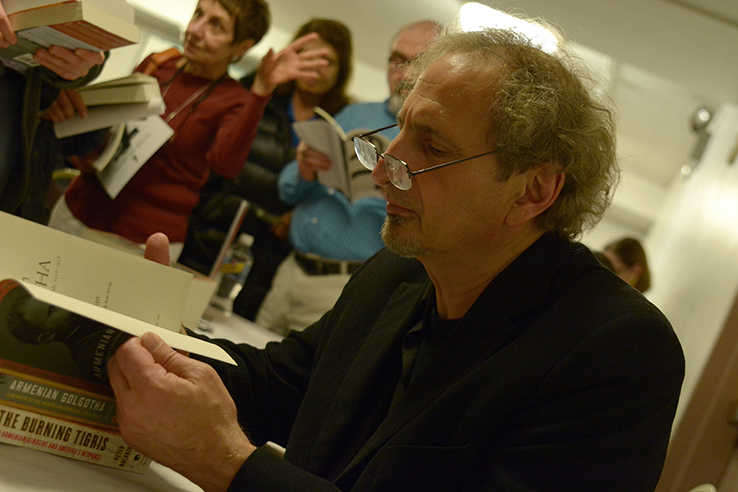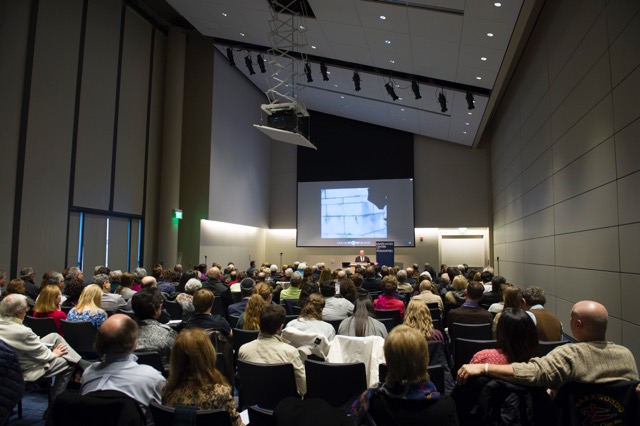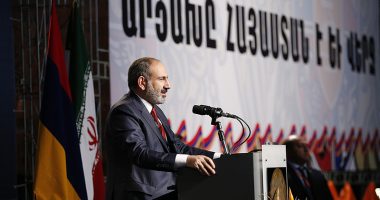NEW YORK — More than 100 people attended Professor Peter Balakian’s discussion, titled “Hollywood and the Armenian Genocide,” at the Diocesan Center in New York on Friday evening, April 8. The event was hosted by the Development department of the Eastern Diocese of the Armenian Church of America.
Central to his talk was the screening of the first part of renowned director Elia Kazan’s 1963 film, “America, America,” which portrays the 1890s massacres against the Armenians and the persecution of Greeks in the Ottoman Empire. The film centers on the journey of Greek protagonist Stavros Topouzoglou, who dreams of leaving his Anatolian village and moving to the United States, and features Armenian characters as part of the milieu of the Ottoman Empire.
“This film is a devastating critique of the Ottoman Empire in its last phase,” said Professor Balakian. “The Greek and Armenian synergy of the characters and their interactions are very touching.”
Professor Balakian noted that according to Kazan, “America, America” was his greatest work. The film, which blends memoir and fiction, is based on Kazan’s Greek uncle, who fled the violence against Christian minorities in the Ottoman Empire and resettled in the United States. Professor Balakian raised the question of why the film never received a modicum of historical context and spoke of the film’s revival, led by Oscar-winning director Martin Scorsese.
“‘America, America’ is about Turkish wholesale killings of Christians,” he said. “Kazan has a breakthrough here, and we need to ask why this film hasn’t been properly understood because it is a rich piece of cinematic art ripe for scholarship.”
Professor Balakian shared his essay, “The Land of Shame,” from his new book of poetry and essays, Vise and Shadow, which reflects on Kazan’s film and the Armenian Genocide.
Concluding his discussion, Professor Balakian opened the floor to questions and comments, which stimulated discussion about the Armenian Genocide and its portrayal in film and the arts in general. Professor Balakian signed copies of his books and conversation continued throughout the evening.
Professor Balakian, the Donald M. and Constance H. Rebar Professor of Humanities at Colgate University, has written widely on the Armenian Genocide. His books include the New York Times bestsellers Black Dog of Fate and The Burning Tigris. His latest book of poetry and essays, Vise and Shadow, was released last year.
“Professor Balakian’s discussion was not only timely, but also evoked an important conversation about a piece of cinematic art that has been overlooked until now,” said Taleen Babayan, who leads the Development department. “The Development department is grateful to him in leading such an engaging talk during the month of Armenian Genocide commemorations and shedding insight into the Armenian cultural and literary world with our community.”










